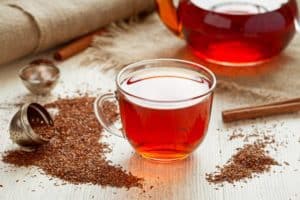If it’s you, then congratulations – you’re the lucky genetic winner of a trait that can give you a boost to health, says Marilyn Cornelis, a research associate at Northwestern University’s Feinberg School of Medicine.
„I’m telling people my cup of tea is coffee research,” Cornelis said. „It’s a hot topic.„
Why the heat? Because studies have found that moderate amounts of black coffee – between 3 and 5 cups a day – reduce the risk of certain diseases, including Parkinson’s disease, heart disease, type 2 diabetes and many types of cancer.
But these benefits are likely to be even more pronounced if the coffee doesn’t have all the milk, sugar and other fatty flavors we often add.
„We know there is growing evidence to suggest that coffee consumption has a beneficial effect on health. Sugar,” Cornelis said.
„One is naturally calorie free. The other can potentially add hundreds of calories to your coffee and the health benefits can be very different,” he added.
Gene for coffee
In initial research, Cornelis and his team found that genetic variation can contribute to why some people enjoy more cups of coffee each day while others do not.
„People with the gene metabolize coffee faster, so the stimulant effects disappear faster and they have to drink more coffee,” he said.
„This may explain why some people seem to drink a lot of coffee in relation to someone who may be anxious or very anxious,” he added.
In a new study published in Nature Scientific Reports, Cornelis explored more suitable types of coffee drinkers and separated black coffee lovers from cream and sugar lovers (or much more).
„We found coffee drinkers with a genetic variant that showed faster coffee metabolism and preferred bitter, dark coffee,” Cornelis said. „We also found the same genetic variation in people who prefer plain tea to sweet and dark chocolate over finer milk chocolate.”
Bitter food and mental improvement
But here’s the turning point. Cornelis and his team don’t think preference has anything to do with the taste of regular black coffee or tea. However, he said that people with this gene prefer black coffee and tea because they associate the bitter taste with the increased mental alertness they desire from coffee.
„Our interpretation is that these people liken coffee to natural bitterness with a psychostimulant effect,” Cornelis said. „They learned to take in the bitterness of the cafe and the enthusiasm they felt. We have seen the effect of learning. „
The same goes for the preference for dark milk chocolate, he said.
„When they think of coffee, they think of bitter taste, so they also enjoy dark chocolate,” Cornelis said. „It is possible that these people are very sensitive to the effects of coffee and have also learned to behave with other bitter foods.”
Dark chocolate contains a certain amount of caffeine, but rather a compound called theobromine, a known caffeine-related nerve system stimulant. But more is not better when it comes to theobromine, studies have found – higher doses can increase heart rate and upset mood.
Dark chocolate is also full of calories, so reducing consumption is good for the waist. However, studies have found that even a small bite of dark chocolate a day can contribute to heart health and reduce the risk of diabetes.
This is probably because cocoa contains many flavanols – epicatechin and catechin – antioxidant compounds that are known to improve blood flow. Other flavanol foods include green, oolong and black tea; Red wine; cabbage; onion; bessen; citrus fruits and soybeans.
Future studies will try to address genetic preferences for other bitter foods, Cornelis said, „which are often associated with increased health benefits.”
„This may indicate that individuals who are genetically predisposed to drinking large amounts of coffee are also involved in other trends in healthy behavior,” he said.





